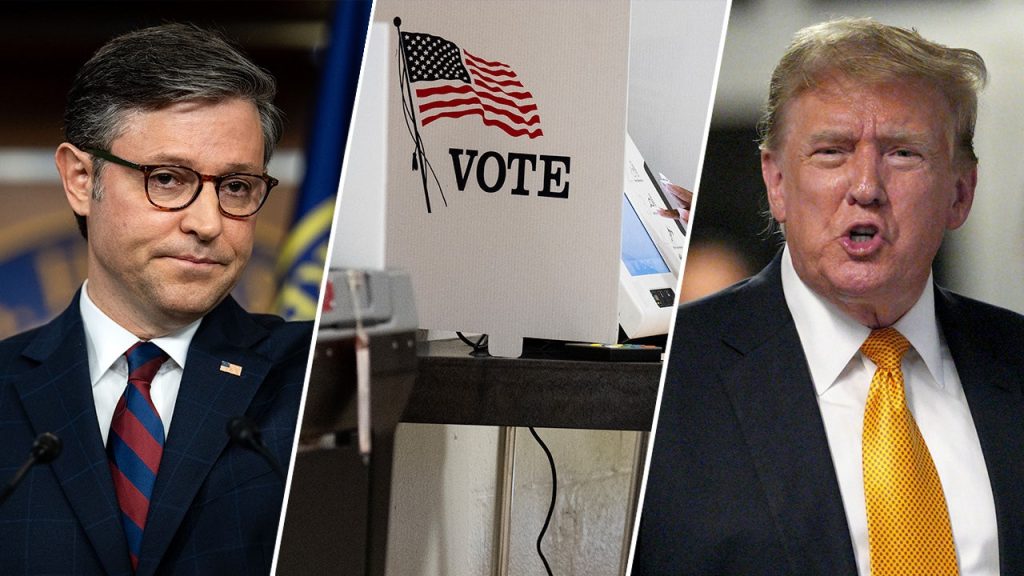The Safeguard American Voter Eligibility (SAVE) Act, a key election security bill supported by former President Trump and Speaker Mike Johnson, has moved closer to a chamber-wide vote in the House of Representatives. The legislation, introduced by Rep. Chip Roy, passed the Committee on House Administration in a 6 to 1 vote. The bill aims to prevent noncitizen voting and foreign influence in elections by requiring states to obtain documentary proof of citizenship for voter registration and purging noncitizens from existing voter rolls. It would also allow citizens to bring civil lawsuits against election officials who do not enforce the citizenship requirement.
Speaker Mike Johnson unveiled the SAVE Act at a press conference at Trump’s Mar-a-Lago resort in Florida and reiterated his support for it at a media event in the U.S. Capitol. Johnson expressed concerns about noncitizens potentially voting due to the open border policies of the Biden administration, stating that even a small percentage of non-citizens casting votes could result in hundreds of thousands of votes being cast. The top Democrat on the Administration panel, Rep. Joe Morelle, argued that the bill would impose extreme documentary requirements on voters, making it significantly harder to vote and potentially disenfranchising millions of eligible Americans.
Conservative groups, such as Honest Elections Project Action, have voiced support for the SAVE Act, with executive director Jason Snead stating that requiring proof of citizenship to register and vote is a necessary policy to promote election integrity. The bill has garnered bipartisan support in the House, with committee Chairman Bryan Steil emphasizing the importance of restoring trust in elections by preventing noncitizen voting and foreign influence. The legislation would also empower citizens to take legal action against election officials who do not enforce or uphold the citizenship requirement, further enhancing accountability in the electoral process.
The SAVE Act has generated controversy and debate among lawmakers, with supporters praising its potential to enhance election security and integrity, while opponents argue that it would impose burdensome requirements on voters and potentially disenfranchise eligible Americans. The bill’s passage through the Committee on House Administration marks a significant step towards a chamber-wide vote in the House of Representatives. If enacted, the legislation would establish stricter measures to verify voter eligibility and combat foreign influence in elections, addressing concerns raised by both Republicans and Democrats regarding the integrity of the electoral process.
As the SAVE Act advances through the legislative process, its impact on voter registration and election procedures remains a topic of intense discussion and scrutiny. Proponents of the bill believe that it is a necessary step to safeguard the integrity of elections and restore trust in the democratic process. Critics, however, raise concerns about potential barriers to voter participation and the disenfranchisement of certain groups of eligible voters. The bipartisan support for the legislation underscores the importance of addressing election security and ensuring that the voices of American citizens are heard and protected in the electoral process.


